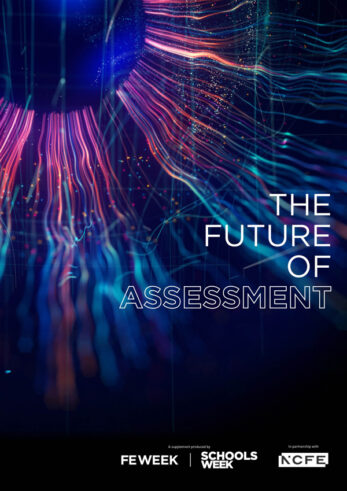Ofqual has recently drawn attention to the outdated ways in which exams are delivered. Under its chief regulator, Jo Saxton, the organisation is asking why assessments are still generally taken with pen and paper in a world where so much is done digitally. It’s a good question, but after a two-year pause on high-stakes assessments because of Covid, the immediate return to traditional exams has caused many to ask still more fundamental ones. Is our assessment system fair on learners? Is it relevant to today’s economy? And importantly, does it help students get on?
A consensus is growing to the effect that digital technology has the potential to create new mechanisms for capturing progress and presenting it to future employers and training providers. That’s welcome, but at the heart of this has to be a commitment to capturing more information about what young people achieve throughout their education.
That’s why we’ve recently set out our new digital learner profile, which provides a workable alternative to the current inequitable situation. A profile has the power to recognise the full range of strengths of every young person.
The digital learner profile captures the competency of young people across a much broader range of strengths and achievements than our formal exams system can. And it stays with them for life, providing a much fuller picture of their capabilities.
The profile will capture what we think are the three core Cs of competence: creative thinking, collaboration, communication/oracy. In addition, it incorporates the building blocks of literacy, numeracy, digital skills and oracy which it presents in the form of formal qualifications (exam results) alongside other evidence of achievements, such as video evidence of team work, oral articulation of learning, personal projects and awards for drama, adventure and civic service. The profile will link to a portfolio of the young person’s best work, providing real and robust evidence of what they can do.
Making assessment relevant
There are similarities to previous attempts to reflect broader learning, such as the National Record of Achievement. After all, today’s employers are not new in wanting to know about pupils’ wider skills and dispositions. But the technology is now in place to make this happen in a much more sophisticated and focused way.
One in six employers (and the number is growing fast) currently don’t look at qualifications at all when hiring people. And it’s not just employers. Universities and colleges also want more nuanced information to understand the challenges learners have faced and their context. Everyone who takes our pupils on after school wants to better understand their potential and what kind of person they are becoming.
In our current system, one-third of young people, often from disadvantaged backgrounds, are labelled failures. And even those who do well in exams leave school without a record that truly reflects the breadth of skills and attributes they possess.
In contrast, the learner profile provides evidence of achievement over the long term. It gives young people the chance to capture and report on their best work over their time at school. This is far more informative for employers than a snapshot of how they performed over a few days at the end.
Empowering teachers
Teachers best understand the skills and knowledge the young people in their care are developing. But our current assessment system disempowers them from bringing the full magic of their subjects to life. Worse, it actively disincentivises schools from developing crucial lifelong skills.
By assessing better, we can bring agency and joy back to a profession struggling with workload and de-motivation and improve our students’ lot in school as well as beyond it.
So let’s not end the assessment conversation at replicating our exams on laptop screens instead of on paper. Technology can deliver so much more. Our learner profile is still evolving, and we want to hear from others about how to improve it further, but the post-exam system genie is out of the bottle and it isn’t going back in.














Your thoughts